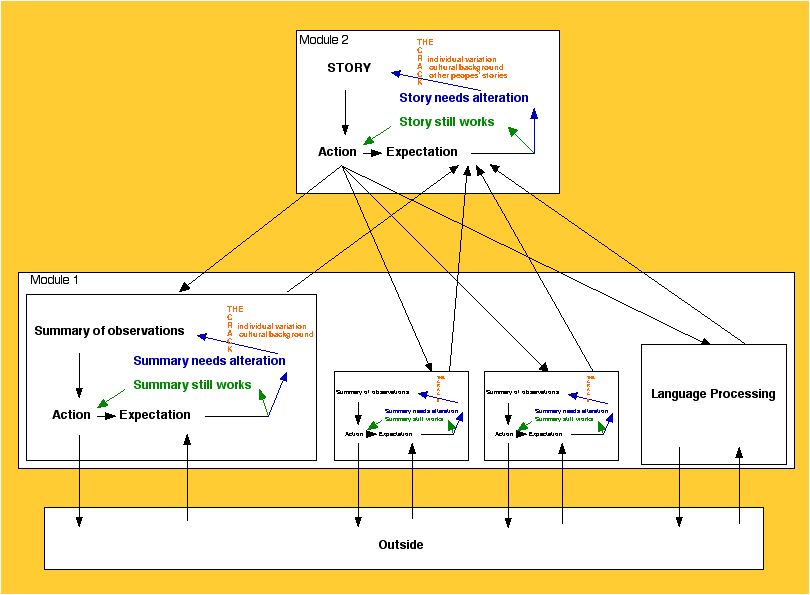Serendip is an independent site partnering with faculty at multiple colleges and universities around the world. Happy exploring!
The Significance of Story in Brain and Mental Health

Background reading
Recent
- Rachel Reiland, Get Me Out of Here, 2004
- Pamela Spiro Wagner and Carolyn S. Spiro, Divided Minds, 2005
- Daniel Tammet, Born on a Blue Day, 2006
- John Elder Robison, Look Me in the Eye, 2007
- Howard Dully and Charles Fleming, My Lobotomy, 2007
- Elyn R. Saks, The Center Cannot Hold, 2007
- Richard Powers, The Echo Maker, 2006 (fiction)
Earlier
- William Styron, Darkness Visible, 1990
- Jean-Dominique, The Diving Bell and the Butterfly, 1997
- Susanne Antonetta, A Mind Apart, 2005
- Kay Redfield Jamison, An Unquiet Mind, 1997
- Temple Grandin, Thinking in Pictures, 2005
- Jonathan Lethem, Motherless Brooklyn, 2000 (fiction)
- Mark Haddon, The Curious Incident of the Dog in the Night Time, 2004 (fiction)
- John Barth, Floating Opera, 1957
- John Barth, The End of the Road, 1958
People experience themselves in ways that are often quite different from how others experience them
- how people experience themselves = their stories
- how other people experience them = their actions filtered through other peoples' experiences
Discovering more of other peoples' stories is both possible and enriching
- "The more I learn, the more I realize more and more that how I think and feel is different" ... Temple Grandin
- "When I read about autism, I discover I'm autistic; when I read about schizophrenia, I discover I'm schizophrenic; when I read about bipolar disorder, I discover I'm bipolar, and so on" ... Paul Grobstein
- Stories have causal efficacy, should be used more in mental health profession training?
People's stories are important for how research is done; the stories should and can be changed
People's stories need to be understood as part of brain function and recognized/dealt with in mental health in those terms
Towards understanding stories in terms of brain function

A case in point: Capgras syndrome (through the lens of Power's The Echo Maker)
- a brain interpretation without story
- a brain interpretation including story and a new question: why the imposter story as opposed to ?
- the story matters, independently of the other brain functions that contribute to it
What else is there to learn about mental health from listening to people's stories of themselves?
Implications? To be continued ...


